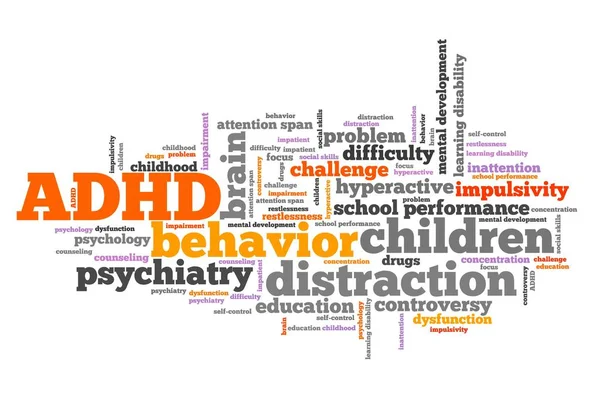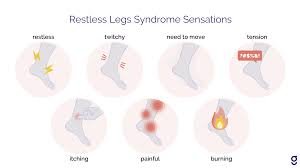Millions of children and adults worldwide suffer with Attention-Deficit/Hyperactivity illness ADHD, a neurodevelopmental illness marked by impulsivity, hyperactivity, and inattention. In academic environments, where the capacity to concentrate, plan, and finish assignments is essential to success, signs of ADHD can present serious difficulties for pupils. To assist control symptoms, doctors frequently prescribe ADHD medication, especially stimulant drugs. This article examines the relationship between academic performance, focus, and ADHD medication, illuminating the ways in which these variables interact to affect learning results.
Knowing ADHD and How It Affects Learning
ADHD medication can show up in a number of ways, such as impulsive behavior, forgetfulness, disorganization, and trouble maintaining focus. A student may find it more difficult to participate in class, finish tasks, and do well on tests as a result of these symptoms. Compared to their counterparts without the disease, children with ADHD are more likely to experience academic underachievement, according to numerous studies.
Research suggests that students with ADHD are more likely to require special education assistance, have worse grades, and drop out of school more frequently. ADHD can have a significant effect on academic achievement, frequently leading to low self-esteem and frustration for students who, in spite of their intelligence and ability, find it difficult to meet academic standards.
ADHD Drugs’ Contribution to Increased Focus
Stimulants and non-stimulants are the two main groups into which ADHD treatments fall. The most often given stimulants, such methylphenidate (Ritalin) and amphetamine-based drugs (Adderall, Vyvanse), have been demonstrated to be quite successful in controlling the symptoms of ADHD.
These drugs function by raising dopamine and norepinephrine levels in the brain, which are neurotransmitters crucial for motivation, reward, and attention. Stimulant drugs can increase focus, reduce impulsivity, and improve executive functioning skills—all of which are essential for academic success—by boosting these neurotransmitter systems.
Direct Impact on Attention and Focus
The quick impact of ADHD medication on focus and attention is among its most important advantages. When using stimulant drugs, students frequently report a discernible improvement in their ability to focus in class, finish assignments more quickly, and contribute more actively to discussions. Improved academic achievement, greater comprehension of the subject matter, and improved knowledge retention can result from this increased focus.
For instance, adolescents with ADHD who were treated with stimulant drugs showed notable improvements in classroom behavior and academic success when compared to those who received a placebo, according to research published in the Journal of the American Academy of Child & Adolescent Psychiatry. According to these results, students can succeed academically if ADHD symptoms are effectively managed with medication, which can improve the learning environment.
Long-Term Advantages of ADHD Drugs
Researchers have looked at the long-term advantages of treatment on academic performance, even though the immediate effects of ADHD medication on focus are well-established. According to a number of studies, taking ADHD medication regularly can result in long-lasting gains in academic performance, classroom conduct, and general educational results.
Enhanced Academic Achievement
Over time, students with ADHD who take medication as part of their treatment plan frequently show improvements in their academic performance. Increased participation in the classroom, improved task completion, and improved attention are some of the reasons that are responsible for this improvement. As their symptoms get easier to control, pupils could also acquire better study techniques and organizing abilities.
Children with ADHD who received medication, for example, scored higher on academic performance tests than those who did not, according to a long-term research that was published in the American Journal of Psychiatry. This implies that a child’s educational trajectory may benefit from early management with ADHD medication in the long run.
Enhanced Engagement and Social Engagement
Additionally, social relations and group involvement can be improved by ADHD drugs. Due to impulsivity or trouble interpreting social cues, many students with ADHD have social skills issues. Medication can help these students interact with peers and teachers more successfully by enhancing focus and self-regulation.
In addition to improving academic achievement, more involvement in group projects and class discussions also promotes a feeling of self-worth and belonging. For kids with ADHD, positive social connections can improve motivation and engagement in the classroom and foster a more encouraging learning environment.
Obstacles and Things to Think About
Notwithstanding the possible advantages of ADHD medication, parents, teachers, and medical professionals need to be aware of the following issues and concerns:
Personal Reaction to Drugs
It’s critical to understand that not all ADHD students will benefit from taking medicine. Individual reactions can differ greatly; some kids may see notable gains in concentration and academic achievement, while others might only see minor advantages or suffer negative side effects. This variation emphasizes the value of careful observation and candid dialogue with medical professionals in order to choose the best course of action for every student.
The Effects of Side Effects on Learning
Even though ADHD medication helps a lot of children, others may have negative side effects that make studying more difficult. Anxiety, irritability, sleep issues, and hunger reduction are typical adverse effects. A student’s capacity to focus and participate in class activities may be impacted by these adverse effects.
A youngster who suffers from severe appetite suppression, for instance, would find it difficult to sustain their energy levels during the school day, which could impair their concentration and academic achievement. Thus, it is essential that parents and educators keep a close eye out for any negative effects and collaborate with medical professionals to modify dosages or look into alternate treatment options as needed.
The Value of Holistic Treatment Programs
The most successful use of ADHD medication is in conjunction with a thorough treatment program that incorporates behavioral therapy, academic assistance, and lifestyle changes. Students who get behavioral therapies, such social skills training or cognitive behavioral therapy (CBT), can improve their self-regulation, coping mechanisms, and organizing abilities.
Academic accommodations, such extra time for exams, preferred seating, and tailored instruction, can also help kids with ADHD reach their greatest potential. By acknowledging and addressing the particular difficulties faced by kids with ADHD, these accommodations help foster a more welcoming learning environment.
Support for Parents and Education
When it comes to helping students with ADHD and making sure they get the right tools and therapy, parents and teachers are essential. In order to track progress and handle any issues that may come up throughout therapy, open communication between parents, educators, and medical professionals is crucial.
Promoting Accommodations
In the classroom, parents should speak out for their child’s needs. In order to assist the child thrive academically, this may entail seeking a 504 Plan or an Individualized Education Plan (IEP), which specify particular accommodations and support services. A supportive learning environment that takes into account the particular requirements of students with ADHD medication can be facilitated by working together with teachers and other school personnel.
Motivation and Constructive Feedback
A student’s motivation and self-esteem can be greatly impacted by positive reinforcement from parents and teachers. Acknowledging and applauding little successes, whether they be behavioral or intellectual, can boost self-esteem and motivate sustained work. Students’ academic journeys can be further improved by encouraging a growth mindset, which holds that development is achievable through patience and hard work.
In conclusion
There is no doubt that ADHD medication and academic achievement are related. Students with ADHD can benefit from better focus, greater engagement, and higher academic results by using medication to successfully manage their symptoms. Even if there are obstacles like adverse effects and individual differences in reaction, a thorough treatment plan that incorporates behavioral therapy, medicine, and academic support can lay the groundwork for success.
Ultimately, taking into account each student’s particular needs, parents, teachers, and healthcare professionals should work together to decide whether to pursue ADHD medication. Students with ADHD can succeed academically and acquire the skills needed for success and learning throughout their lives with the correct assistance and interventions. By acknowledging the significance of concentration in education, we can establish a learning environment that enables every student to realize their greatest potential.















Leave a Reply